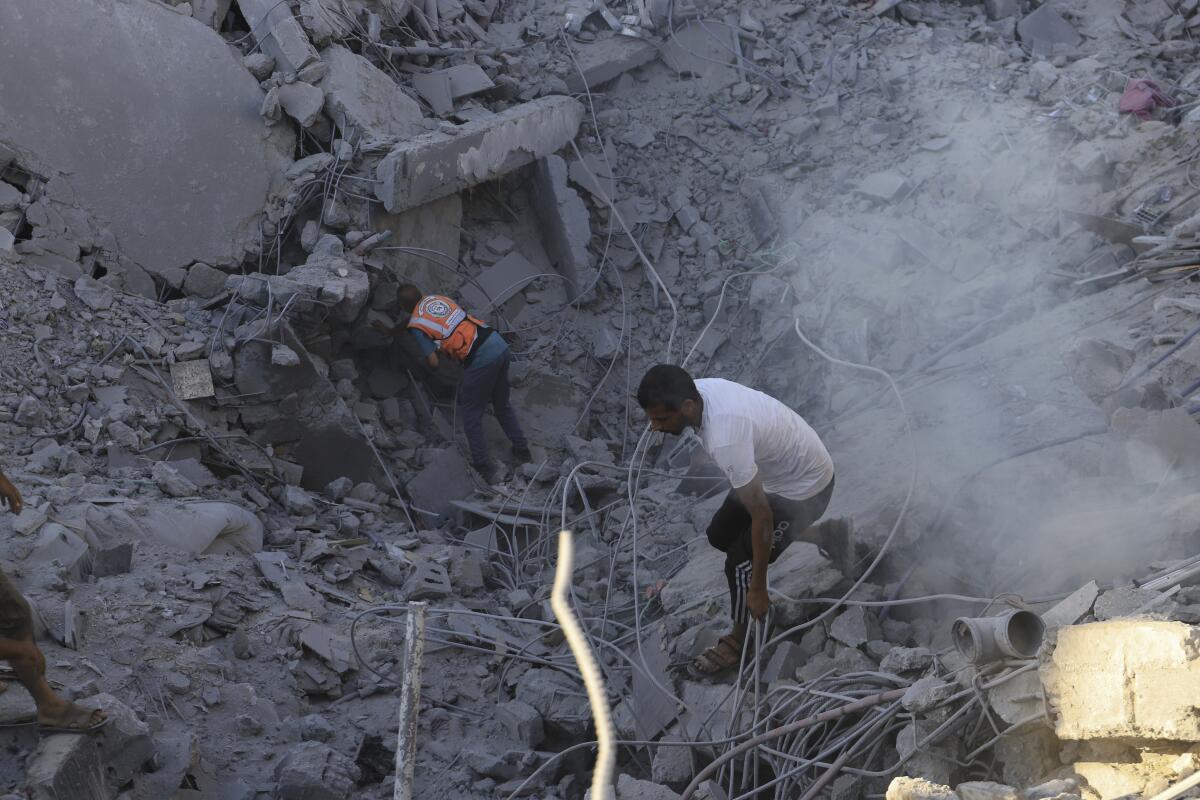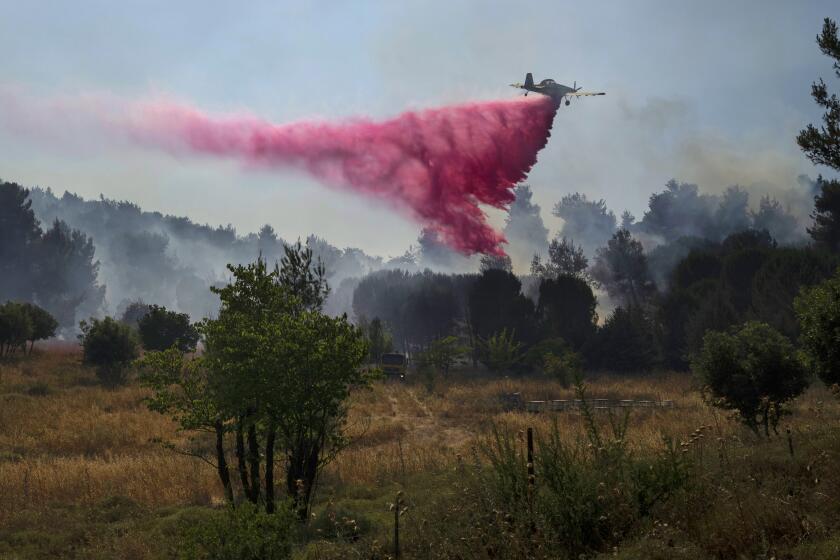Israel approves plans for nearly 5,300 new homes in West Bank settlements, group says

JERUSALEM — The Israeli government has approved plans to build nearly 5,300 new homes in settlements in the occupied West Bank, a monitoring group said Thursday, the latest in a campaign to accelerate settlement expansion, aimed at cementing Israeli control over the territory and preventing the establishment of a future Palestinian state.
Word of the decision emerged as diplomatic efforts aimed at ending the nine-month war in Gaza appeared to be stirring back to life after a weekslong hiatus. Prime Minister Benjamin Netanyahu’s office said he had decided to send negotiators to resume negotiations. A day earlier, the militant Hamas group handed mediators its latest response to a U.S.-backed proposal for a deal.
Fighting intensified between Israel and Lebanon’s Hezbollah, with the militant group saying Thursday it fired more than 200 rockets and exploding drones into northern Israel to avenge the killing of a senior commander in an Israeli airstrike the day before.
Months of exchanges have literally set the Israeli-Lebanese border ablaze and raised fears of a potentially even more devastating war in the Middle East. Hezbollah has said it will halt its attacks if there is a cease-fire between Hamas — a fellow Iran-backed ally — and Israel.
The escalating war between Hezbollah and Israel — coupled with scorching heat — has sparked fires that are destroying forests and farmland.
Israel’s turbocharged settlement drive threatens to further stoke tensions in the West Bank, which has seen a surge in violence since the war in Gaza began on Oct. 7.
The Israeli anti-settlement monitoring group Peace Now said the government’s Higher Planning Council had approved or advanced plans for 5,295 homes in dozens of settlements across the West Bank. It also “legalized” three informal outposts as new neighborhoods of existing settlements in the Jordan Valley and near the city of Hebron.
On Wednesday, Peace Now said Israel approved the largest seizure of land in the West Bank in over three decades. COGAT, the Israeli defense body that oversees the planning council, referred questions to Netanyahu’s office, which did not immediately respond to a request for comment.
Netanyahu’s government is dominated by settlers and their supporters. The hard-line nationalist finance minister, Bazalel Smotrich, himself a settler, has been put in charge of settlement policy and has said his rapid expansion drive is in part intended to ensure a Palestinian state cannot be created. In an escalation over past months, settlers have carried out more than 1,000 attacks on Palestinians, causing deaths, damaging property and in some cases prompting Palestinians to flee villages.
Religious Zionists, most believing in a divine right to govern, now have outsize influence in Israel. The war in the Gaza Strip is energizing their settlement push.
The Palestinians seek the West Bank, East Jerusalem and Gaza — areas captured by Israel in the 1967 Mideast war — for an independent state.
The new housing approvals could also rankle Israel’s ally, the United States, which speaks out against settlements, though it has done little to pressure Israel on the issue. The question of Palestinian statehood has become enmeshed in efforts for a long-term resolution for Gaza. The U.S. has raised the idea of the West Bank-based Palestinian Authority governing Gaza in any post-war scenario and has called for a revival of the peace process to lead to a Palestinian state.
Netanyahu has firmly rejected both ideas.
The revival of cease-fire talks appeared to mark another attempt by U.S., Qatari and Egyptian mediators to overcome the gap that has repeatedly thwarted a deal. Hamas wants a deal that ensures Israeli troops fully leave Gaza and the war ends; Netanyahu says the war cannot end before Hamas is eliminated.
Sometimes in Gaza it feels like a cigarette is the only thing that might help. But even that is out of reach.
Gaza’s Health Ministry said Thursday that the number of Palestinians killed by Israel’s attacks in Gaza had climbed past 38,000. The ministry does not differentiate between combatants and civilians in its count. The war began when Hamas-led militants launched a surprise attack on Oct. 7 into southern Israel, killing around 1,200 people and abducting another 250 people.
Netanyahu spoke Thursday with President Biden to discuss his decision to send a delegation to continue negotiations, Netanyahu’s office said. He also told Biden that Israel is committed “to finish the war only after achieving all of its objectives” — a reference to the twin war goals of rescuing hostages and destroying Hamas.
The U.S. has rallied world support behind a plan for a phased cease-fire in Gaza that calls for the release of all hostages still held by Hamas in return for a lasting truce and the withdrawal of Israeli forces from Gaza.
So far, neither side appears to have fully embraced it.
Associated Press writers Federman and Goldenberg reported from Jerusalem and Chehayeb from Beirut. AP writers Abby Sewell in Beirut and Aamer Madhani in Washington contributed to this report.
More to Read
Sign up for Essential California
The most important California stories and recommendations in your inbox every morning.
You may occasionally receive promotional content from the Los Angeles Times.













